|
|
This book tells the story of a women's heroism during the war. In chronological order, the book covers the wars of XIX beginning of the XX centuries, the Civil War, and the Great Patriotic War. The woman has always been a defender of her homeland. She became a party to a voluntary military operations and accomplished feats, saving the wounded and sick on the battlefield, carrying with honor military service. The book tells about such well-known people inextricably connected with the war as N. Durova, Grand Duchess Elena, N. Trubetskaya, M. Kshesinskaya, N. Popova, A. Kollontai, P. Osipenko, V. Grizodubova, Z. Kosmodemyanskaya, and many other heroines of that time.
|
|
|
The book consists of well-known works by Mikhail Sholokhov, singing the praises of the heroic courage and dedication of the Soviet people in repelling the Nazi invasion.
|
|
|
“When I read this book, knowing that this is not a novel, not a fiction but a documentary, I kept thinking: maybe Mikhail Alekseev among the thousands of people he had seen in Stalingrad met my father. Maybe somewhere at the station, at the crossroads of the front road suddenly they met on the second eye. Perhaps the events described by Alekseev, my father saw the same eyes? I read My Stalingrad in the eyes of a son, who lost his father in Stalingrad, with the hope that in the book I would meet him even for a moment. I do not know where his grave is. And so, reading the book, I identified the mysterious way of Mikhail Alekseev with my father. I behave to himself and to his book as a son. As to the “literary father”, even though we write in different ways”, says Alexander Prokhanov about the book, which became one of the most significant events in the literature of the late XX century. The new edition of My Stalingrad was supplemented by the first time published Mikhail Alekseev's letters of 1942-1943 years from the besieged Stalingrad. The one-volume edition also includes the most famous works of the 60-80s, Brawlers and Bread is a noun.
|
|
|
Victor Astafyev (1924-2001) is an outstanding Russian writer and winner of State Prizes of the USSR and the RSFSR. In 1942 he volunteered for the front, in 1943, after graduating from Infantry School, he was sent to the front, and until the end of the war he remained a common soldier. At the front, he was awarded the Red Star and the Medal For Courage. His experience in war, and the war itself, became the central themes for the writer. The Damned and Killed novel he filled with the incredible energy – energy of resistance to premature death. With this novel Astafyev summed up his thoughts about the war as “a crime against reason”.
|
|
|
His first fight a lieutenant, the famous writer, Yury Bondarev, took on the Stalingrad front, a turning point in World War II. “Hot Snow” of the winter 1942-1943 absorbed not only the victory, but the bitter truth about the war, where “being is face to face with nothingness”.
|
|
|
Novel of famous writer Georgy Bryantsev “On thin ice”, is not necessary to be introduced to the writer. This bestseller has won its readership, and is one of the most popular books of military adventures. The author knows the inside work of the KGB, so the events described are not entirely fiction. This is the story of an experienced professional scout.
|
|
|
They did not plan military operations. They participated in them. They were not the architects of victory. They were its workers. Their hands clasped arms. Their feet passed along endless roads of the war. Their eyes looked out through the enemy's sight. Mighty "cheers" or dying groans burst out of their mouths. They were hurt. They were scary. It was cold. But they survived and won. The Soviet soldiers ...
About them — a collection of war prose of Boris Vasilyev, which included the following stories: He was non-listed, Meeting engagement, and the screenplay Aty-Baty, soldiers went.
|
|
|
In this novel Vasilyev describes the life and death of five girls, anti-aircraft gunners. They came to war on their own, they almost did not know how to shoot, and they were killed by Nazi intelligence, protecting themselves and their homeland. Women and girls were very young… The war didn’t not set the boundaries of age and sex – everyone was a soldier. In the rear were the Germans; and every soldier felt his duty to the motherland – to stop and destroy the enemy at any cost. And they would stop it, but at the cost of their lives.
|
|
|
We can like or dislike books. But among them there are those which do not fall into any of these categories, but represent something more to sink into the mind, become an event in a person's life. Such an event is a book by Konstantin Vorobyov, Killed near Moscow. As if he heard a voice:
... We can’t wear our fighting orders.
Everything is for you, alive people,
For us the only joy is that :
We struggled
For our Motherland.
Let no one heard our voice, —
You should know it.
These lines are taken by the author as an epigraph from I killed at Rzhev poem by Tvardovsky that is similar to the story of Konstantin Vorobyov in the name, and mood, and thoughts.
The author himself passed the war — it’s easy to be found out without reading his biography. It is impossible to write in such a way from hearsay or from the imagination — only an eyewitness, a participant could do it. Killed at Moscow story, however, as all the works of Konstantin Vorobyov, is very emotional. This book is special by the fact that it combines, on the one hand, realism, and on the other — a deep understanding of the events and subtle psychological analysis of the characters from the height of his age.
Killed at Moscow is a short story, but it includes an entire era. This feeling comes because the war breaking into human life, affects it, like nothing else, and radically changes it. If in peace-time the soul develops, evolves, then the war is breaking it: the old moral values, the old view of things are broken. The literature of peace-time symbolizes spiritual quest becoming a way, but Konstantin Vorobyov shows another symbol – erratic, desperate throw under fire from the air.
|
|
|
The Life and Fate novel became the second book of Stalingrad Novels by Grossman. It was written in 1960, rejected by the Soviet press and confiscated by the KGB. A miraculously preserved copy was first published in Switzerland in 1980, and then in Russia in 1988. In this work the writer rises to the level of generalization, and looks upon the high drama of Stalingrad, in terms of universal and comprehensive categories of human existence.
|
|
|
The best and most honest novels of the Great Patriotic War were written by Emmanuil Kazakevich. “Star” is a call sign of military intelligence officers who had gone to raid the enemy rear areas to the cost of their lives to get information about the SS Tank Division. The heart of a friend is lyric-dramatic tale of the military life and happy love.
|
|
|
The well-known tale about the fate of a peasant boy, Vanya Solntsev, who orphaned during World War II and became the son of the regiment.
|
|
|
In the Trenches of Stalingrad novel by Viktor Nekrasov, tells about the war of Stalingrad period. The main thing of the work is the truth about the inhumanity of any war, “just”, or “unjust”. On the surface of the narrative is the military life and the peoples’ heroism, seen through the eyes of the intelligentsia, it is based on the deeply hidden rebellion against the idea of a “man-cog”.
|
|
|
The Living and the Dead novel by Simonov is about the most difficult first two years of the Great Patriotic War.
Events of the novel, Soldiers are not born, logged into an epic of Konstantin Simonov, The Living and the Dead, unfold in the winter of 1943 — during the preparation and conduct of the Battle of Stalingrad, which became a turning point not only of the Great Patriotic War, but the Second World War.
|
|
|
From the verses by O. Bergholz, which she did not hope to see printed during her lifetime, we learn the truth about the siege. From poems, diaries and letters by Bergholz who had already known the horror of Stalin's dungeons, we learn what happened to our country in the thirties and forties. Before us is a large book of lyrical and civil poet, because only such a poet and a man in the early days of the war could say after all experienced, “... This is my life, breath. / Motherland! Take it from me!” All 900-day siege O. Bergholz remained in a dying town. “In the history of Leningrad's epic, she has become a symbol, the embodiment of heroism of the siege tragedy. She was honored as the blessed, holy one” (D. Granin). “Nobody is forgotten, nothing is forgotten”, these words of hers are engraved on the wall of Piskarevsky cemetery. But in the context of her life and the lives of millions of our countrymen, these words take on the meaning that goes far beyond just blockade. This edition includes poems, verses, and the book of O. Bergholz, Daily Stars, which she considered the major one in her life.
|
|
|
In deeply truthful, full of humor, and classically clear in its poetic form, the poem, Vasily Terkin (1941-1945), Tvardovsky created an immortal image of the Soviet soldier. Endowed with the lyricism and the “invisibility of a deeper meaning under a more superficial one, visible at first sight”, the poem has become the personification of patriotism and the spirit of the nation.
|
|
|
The novel by the famous Leningrad writer is dedicated to the tankers. It tells about the crew of self-propelled guns, the heroism of the Soviet people in World War II. The Story is very popular and is considered one of the best works of the war.
|
|
|
The book is a story about a Soviet pilot, Alexey Meresyev, who was shot down in World War II battle, badly wounded, but was back into the ranks of active pilots. Through an extraordinary destiny of a military pilot, the book shows that very force, incomprehensible to Europeans, the Russian spirit, which for centuries has not allowed anyone to conquer our great country, and once again defended its independence in the most terrible and ruthless war ever.
|
|
|
The book contains three stories of the famous writer Vasil Bykov, which brought the author international fame. Obelisk story is a tribute to all obscure heroes of the Great Patriotic War who gave their lives for the sake of victory. Moment of Silence filmed on the novel, successfully bypassed screens not only of our country but also Western Europe. The harsh reality and at the same time immense love and compassion for the characters — these are the two main distinguishing features of all the works by Vasil Bykov.
|
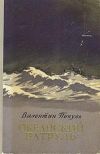 |
The Ocean Patrol novel is dedicated to the events of World War II in the northern theater of operations. The novel by V. Pikul is about heroic sailors of the Northern Fleet, the actions of scouts behind enemy lines. This story is also about those of us who love and wait for the sailors on shore.
|
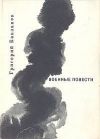 |
This book includes the famous works of Grigory Baklanov, published by the Soviet writer in recent years. South of the main attack, Inch of Land, The Dead have no shame, and July 41 Novels along with the story of How much is a pound of trouble covers the war years — from the first days of the war till the first peaceful days, won by the Soviet soldiers, which they met far beyond our country.
|
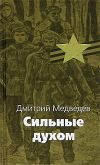 |
The book by Dmitry Medvedev, Hero of the Soviet Union, commanded the guerrillas during World War II, entered the golden fund of spiritual and patriotic literature. The story of the legendary agent, Nikolay Kuznetsov and heroes of past battles is interesting by documentary historical facts and is filled with the eternal memory of the brave and the strong spirit of people.
|
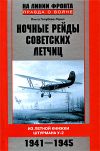 |
During the Great Patriotic War there was an extraordinary regiment — the 46th Guards regiment of night bombers. “Night” — because the bombers were little old training biplanes U-2 (Po-2), “armored” by plywood sheathing. Such machines could not fight during the day, as other combat aircraft. “Unusual” — because the entire staff of the regiment — from technology to the commander — were women. Most of the girls were 18-22 years old. Those girls have done 000 sorties over three years 24. 25 pilots and navigators became Heroes of the Soviet Union.
It is the book of a former regimental navigator, Chevalier of the Order of Glory, Olga Golubeva –Teres. It is a true story of the battle way of the unique military unit of the Red Army.
|
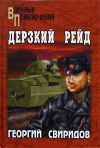 |
In the famous novel by the famous master of domestic extremely topical literature, Georgy Sviridov, it is told of the events of turbulent 1918, when the help was sent to Soviet Turkestan surrounded by the Civil War —a special military expedition was outfitted, which was carrying ammunition, weapons and ... gold. This was found out by the British intelligence, which sent to an expedition their own agent ...
|
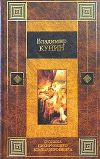 |
Novels by Vladimir Kunin are rightly considered classics of the national literature.
Chronicle of a diving bomber is a book that became a cult for thousands of amateurs of prose about the Great Patriotic War.
|
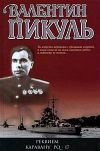 |
Requiem for PQ-17 caravan is a book written on the documental basis of a cruel tragedy of the last war — the death of allied convoy in the polar latitudes.
|
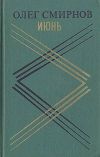 |
Oleg Smirnov’s collection of stories devoted to the Soviet border guards: their exploits during World War II, the glorious traditions of the martial warriors security officers, border guards service, guarding the peaceful labor of our country.
|
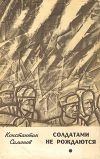 |
The Battle of Stalingrad, which ended in a crushing defeat of Nazi troops, and memorable experiences of severe January 1943, formed the basis of the novel by Konstantin Simonov, Soldiers are not born. The very title of the novel defines its main task — to show how the Soviet soldiers were maturing during the difficult war days, how they were mastering the art of winning.
The complex truth of the war, which is the subject of previous novels by K. Simonov, Comrades in Arms, and The Living and the Dead. Soldiers are not born novel tells of the fate of the characters already familiar from previous works — Sintsov, Serpilin, Tanya Ovsyannikova, Artemyev, and others.
|
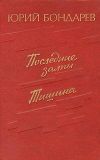 |
The one-volume of the winner of the Lenin and State prizes, Yury Bondarev include the story, The latest salvos, and the novel, Silence. These works are full of harsh and courageous truth of the war and postwar period. The hero of The latest salvos belongs to a generation taking a leap on the field of the war immediately after school and college. In the novel Silence this generation shall take a leap in peaceful life. The time setting of the novel is complex and memorable post-war years.
|
|
|
Novels by V.A. Kurochkin are the most sincere and penetrating works about the Great Patriotic War. The hero of War is war, the commander of the self-propelled guns, Sanya Maleshkin, is a young boy with plump lips; his youth came to the brutal war. Youthful hopes and a desire to live tragically combine with human suffering and death every day. The hard truth about the war in the novels of V. Kurochkin is softened by romance and humor that rescued people during inhumane conditions of wartime.
|
|
|
Boris Vasilyev, once on the front of a young guy, he knows about the war firsthand. Telling the story of the main character of He was non-listed, Lieutenant Pluzhnikov, a writer tells the story of the path traversed by him and his peers. This is the way of forming personal human and national dignity, forcing the enemy to salute the boy, declaring, “I am a Russian soldier”.
|
|
|
Vasil Bykov's novel, His battalion, ends with the words, “The war went on”. Taking the height described by the author is only one episode in the war, the battalion commander Voloshin, to face a lot and maybe die in one of them. But, no matter how hard the front is, it is always necessary to be a man, “And the greater a person is, the more important to him his own life and those around him”.
|
|
|
The defense of Leningrad party, Nikolay Chukovsky (1904-1965), the son of a famous writer, Korney Chukovsky, has created one of the best works of the Great Patriotic War. The Baltic Sky is the novel not only about the everyday lives of frontline pilots of the Baltic Fleet, but also about courage and perseverance of the besieged city residents.
|
|
|
This book is about the war, the soldiers of leading edge, close battle, trench, hastily trained peasant children, tolerant and patient, not always well-fed, but defeated the enemy, before whom the nations of Europe were trembling.
This book is about love, taken by the war from the pure young souls. Peacetime, which replaced the military weekdays, sometimes turns out to be harder for the heroes of the war.
All the works of Anatoly Genatulin are deeply autobiographical and honest. He writes only about what he has gone through himself — a soldier, drafted into the army in 1943, who, with battles, came down to the Elbe in the victorious 1945.
|
|
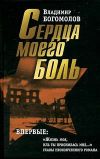
|
The book includes the famous war novels and short stories of O.V. Bogomolov, Ivan, Zosia, First Love and others; documents from his personal archive, as well as the chapters of the still unpublished novel, My Life, Or you appeared in my dreams... Along with the heroes of the novel the reader is experiencing the victorious spring of '45 in Germany, moved to the Far East (the war with Japan) and Chukotka where the confrontation with America begins. The young lieutenant Fedotov, whose fate brings together several books of the novel, is a direct continuation of the beloved characters of The Moment of Truth and Zosia.
|
|
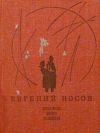
|
Love of country, of native land, concern for their fates is the main theme in the oeuvre of the famous writer, Yevgeny Nosov.
|
|
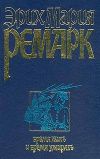
|
“And in front of us everything is in flower, and behind us everything is in fire... One should not think, here is one who will decide everything for us!” But what to do if you can’t stop thinking? What to do if you are not able to become a pathetic cog in a monstrous war machine? Hell-scorched countries are behind. Dirt and blood of World War II are ahead. “It is time to die”, it seems not to come to the end. If many get to the “time to live”…
|
|
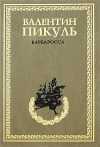
|
Barbarossa is the first volume of the last, unfinished Square of Fallen Fighters novel by V. Pikul. The author did not have time to write the second volume. The novel is thinking as the writer called it, which is devoted to the events of the Great Patriotic War, the heroic and tragic Battle of Stalingrad.
|
|
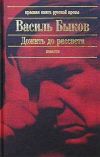
|
Vasil Bykov is an author who has devoted his oeuvre to the war theme. His stories reflect the acute conflicts of 1941-1945, opposition and resistance of peoples and human hearts. Manifestation of the moral essence of the characters, dynamic plot and wonderful charm of the truth make the works of Vasil Bykov attractive for a large number of readers.
|
|
|
A cheerful soldier in fact is not a funny story, as difficult and horrific military life is. Over the past decade have not been exhausted in Victor Astafiev genuine anger to indifferent destroyers of soldiers' lives — to incompetent commanders, to “the people's idol”, Zhukov; to the Father and to the Generalissimo. But, it would be too easy to call this confession “trench truth” — the book is full of genuine pity and compassion inherent in that Russian literature, which Thomas Mann called holy.
|
|
|
One of the world’s most famous books about the war marked the beginning of the famous art and documentary series by Svetlana Alexievich, Voices of Utopia. Translated into more than twenty languages it is included in the school and university programs in many countries. Last author edition: the writer, in accordance to her creative method, constantly revises the book, removing the censorship editing, inserting new scenes, complementing the written women's confession with her own diary pages. The War has not a woman's face is the unique experience of penetration into the spiritual world of a woman surviving under inhumane conditions of the war.
|
|
|
The book of a well-known military historian and theorist, is a political and operational-strategic outline of the Second World War.
The book exposes the machinations of the ruling crime circles of the Western powers, led to the outbreak of World War II. The author shows the course of the fighting in various theaters of the war, reveals some of the mistakes and miscalculations of Hitler's military command and the Anglo-American leadership.
The reader will find extensive factual material that is of great interest to study the history of the Second World War.
Subjects covered in the book are illustrated by the schemes.
|
|
|
The first volume of I was fighting on the T-34 project was a real breakthrough, a major military historical bestseller in 2005. The second book has developed a success — true stories of veterans-tankers who fought on the legendary T-34, left nobody indifferent.
In this edition, both books are not only united under one cover, but also greatly refined, expanded and enhanced with new interviews and previously unpublished materials.
|
|
|
The book is dedicated to the tanks supply under Lend-Lease, their operational use in the units of the Red Army.
|
|
|
This book contains the memoirs and diaries of the participants in the heroic battle for the city of Lenin — the Red Army and Navy commanders militia and partisans commanders, the leaders of the Party, Soviet, and Komsomol organizations of Leningrad, the industry, science, medicine and education, workers, workers of the legendary Ladoga Road of Life.
|
|
|
Elena Rzhevskaya participated in the search for Hitler, the truth of the last hours of his life, identification of the Fuhrer corpse.
The book Berlin, May 1945 is unique: found in Hitler’s bunker documents, Bormann’s papers, Goebbels’ diary pages, as well as transcripts of their nearest — first published by Rzhevskaya, gives, along with her personal impressions, the visible representation of the end of the 3rd Reich.
|
|
|
Characters in the novel of Victor Manuilova are the soldiers and commanders of the Red Army, trapped in Nazi captivity. Many of them died and the survivors had to be thoroughly tested in the filtration camps of the NKVD, and only some of them had the right to wash off the “blot” on the battlefield. Of these people who suffered so much, separate assault rifle battalions were formed. In the novel Arrowhead, it is told about the tragic fate of one of the battalion. At the heart of the novel is the fate of real-life person — the regiment commander, Lieutenant Andrew Krasnikov.
|
|
|
Yury Bondarev, who went to war from school-days, all his work was dedicated to the problems of the Great Patriotic War. The secret to the success of his prose is an artistic skill, a unique creative style, high moral culture and humanity.
The main character of The Shore Front novel is a man survived in a hot fight against fascism, who agonizes over the many challenges of life, among which, however, the main ones are all the same as those generated by the war.
|
|
|
The works of famous writer, Elena Rzhevskaya included in this book, were written on the basis of by-past during the endless battles of Rzhev — the bloodiest stage of the Great Patriotic War. Penetrating perception of those tragic events, which absorbed the pain and grief, inspiration and heroism, is reflected in such stories as The nearest routes of approaches, Agitating the Heat, and Rzhevsk stories.
The front service led the military translator in the army headquarters, Lt. E. Rzhevskaya, from the depths of defeat to the Great Victory in Berlin, May 1945. But that year on the Rzhev ground forever remained in the memory.
|
|
|
Daniil Granin called nine hundred days of the Leningrad blocade, “an epic of human suffering”. Blockade Book, written with Ales Adamovich, based on the memoirs and diaries of hundreds people. Among the testimonies of those terrible days there are diaries of a dead teen, Yura Ryabinkin, scholar and historian, G.A. Knyazev, and many others. “It was the story not of nine days of heroism, but nine days of unbearable suffering”, wrote Granin.
This book is about heroism, the book about the limits of man and his spiritual strength, which has helped many people survive the hunger, cold, and shelling under inhumane conditions, and to remain men.
|
|
|
The book of a renowned journalist and writer, Vasily Peskov, War and the People, include memories of those survived, with various “military experience” — of Marshal Zhukov and Marshal Vasilevsky, writer Konstantin Simonov, the front-line intelligence officers, ordinary soldiers and those who were in captivity.
The war is opened to the reader from all sides — from the Supreme Commander and from the trench where ordinary soldiers wait for the signal to attack. Letters of Sergeant Pavlenko and conversation with an ordinary officer, Mansur Abdulin are very dramatic and candid.
The author tells us, that the war meant for the people of his generation — the people whose adolescence occurred in the war.
|
|
|
Volokolamsk Highway book, which appeared in the years of the war, has gained wide popularity in our country, and far beyond. The epic, on which Alexander Beck (1902/03-1972) had been working for nearly 20 years (until 1960) is devoted to dramatic days of the Great Patriotic War, on the eve of the first major victory of the Soviet troops near Moscow. Characters of the book are the legendary General I.V. Panfilov and his men who have displayed courage, fortitude and heroism.
|
|
|
Georgy Vladimov (1931-2003) is a recognized classic of the Russian realism of XX century. He is read, he is written about, praised, and they argue about him. The main problem of the writer is the price of Russia's salvation, the preservation of the moral integrity of a man. The General and his army novel is about the people who are ready to die for the salvation of the homeland, which has spared no one and, like an impregnable citadel, towers over the spilled blood.
|
|
